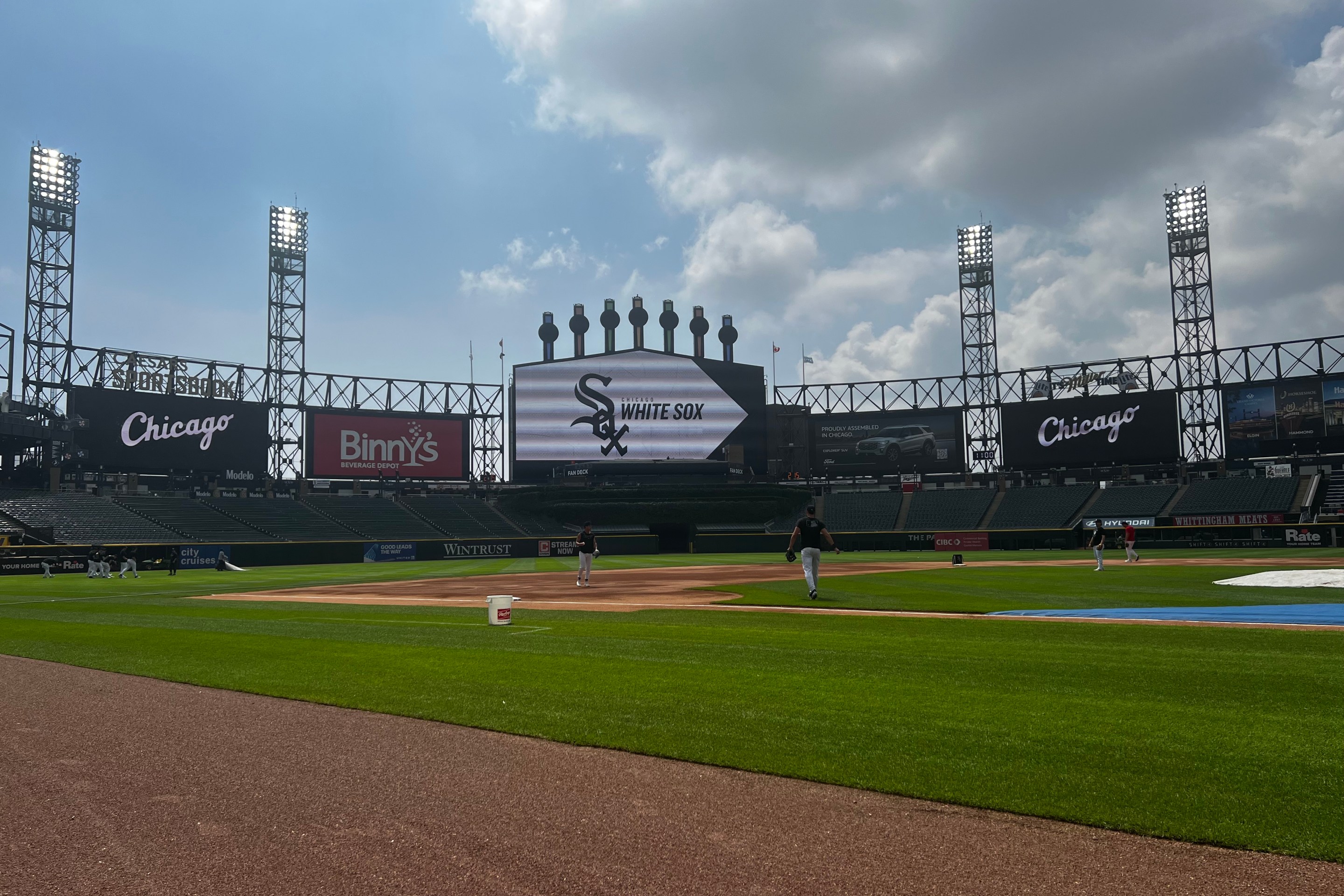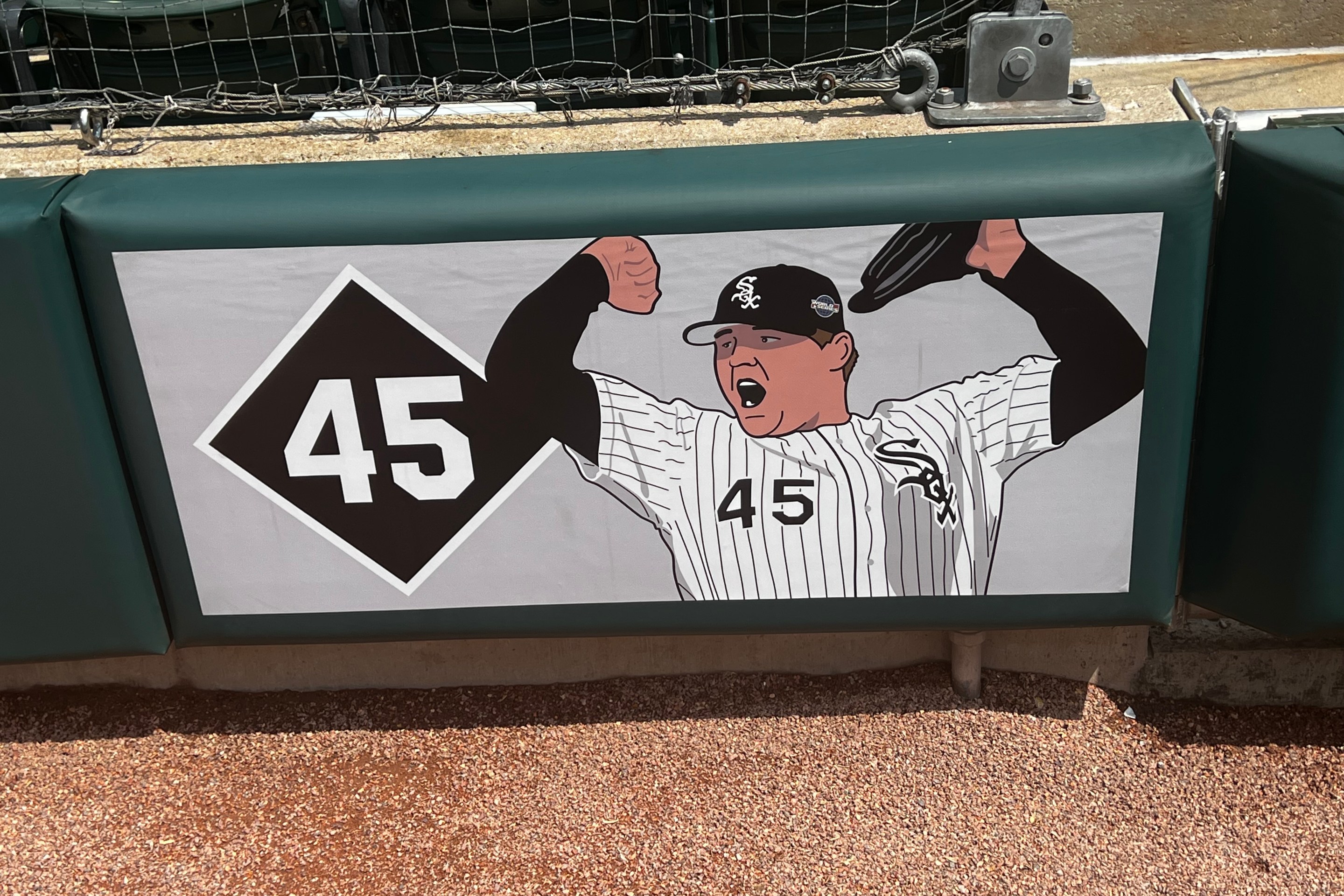Having already secured a series win with an easy Reynaldo López start of all things, the White Sox played with house money by sending out Jonathan Stiever in his MLB debut for the sweep.
And you know what? They won that, too.
Stiever almost didn't make it out of the first inning thanks to jitters and control problems, which each problem exacerbating the other. He settled down to get the Sox into the fourth with the game tied at 1, and the offense and bullpen carried it the rest of the way.
The White Sox swept the Tigers for the second time this season, finishing with a 9-1 record against Detroit. They also locked in a .500 record for the season, which basically guarantees them a postseason spot. Their magic number for the time being is six, with results of the Mariners game pending.
Stiever almost buried himself in the first inning as he struggled to locate anything that wasn't a fastball, and even that had problems. He walked the first two batters, and was lucky that Victor Reyes was called out on a Tim Anderson swipe tag attempting to advance on a wild pitch because the replay didn't show contact. A grooved fastball to Miguel Cabrera and a spinning slider to Jorge Bonifacio put the Tigers up 1-0, but Stiever struck out Daz Cameron with the bases loaded to sidestep disaster.
Stiever didn't allow another baserunner the rest of his afternoon, retiring the final nine batters he faced before Rick Renteria came out with an enthusiastic hook with two outs in the fourth inning. Jimmy Cordero opened a bullpen effort that held down the Tigers while the offense got up to speed.
Spencer Turnbull made the White Sox work harder than the last time he faced them. The Sox had to apply pressure over multiple innings in order to break through for good, but eventually the effort paid off.
In the second, James McCann singled, stole second and scored on Yoán Moncada's double to the gap. In the fourth, Eloy Jiménez kept his extra-base hitting streak to six games with a solo shot. He didn't barrel it up, but it still gave the Sox the lead.
Turnbull finally caved in the fifth. Danny Mendick won a nine-pitch battle with a single through the middle, and while the Sox played for one run, they ended up scoring three. Jarrod Dyson bunted Mendick to second, and Tim Anderson made "scoring position" mean something with an inside-outed RBI single to right.
Yasmani Grandal kept the line moving with a walk, and Anderson then scored from second himself on José Abreu's poked grounder through the right side for a 5-1 lead.
The White Sox bullpen had it from there, encountering only the mildest of threats. Cordero worked around a leadoff walk in the fifth, Matt Foster allowed two-out hits in the sixth and seventh with nothing else, and while Steve Cishek couldn't carry his 1-2-3 eighth fortune into the ninth, he made it a save situation for Alex Colomé, who went three-up-three-down and never brought the tying run to the plate.
Bullet points:
*The White Sox combined to go 18-2 against the Royals and Tigers, while the Indians are 9-7, and the Twins 9-9.
*Anderson went 2-for-4, hitting above .500 against Detroit for the season (20-for-39).
*Mendick made a couple of nice plays at second base in the form of a leaping grab and a diving stab.
*Stiever's first inning included an interminable four-minute wait for the review on Anderson's tag of Reyes.






